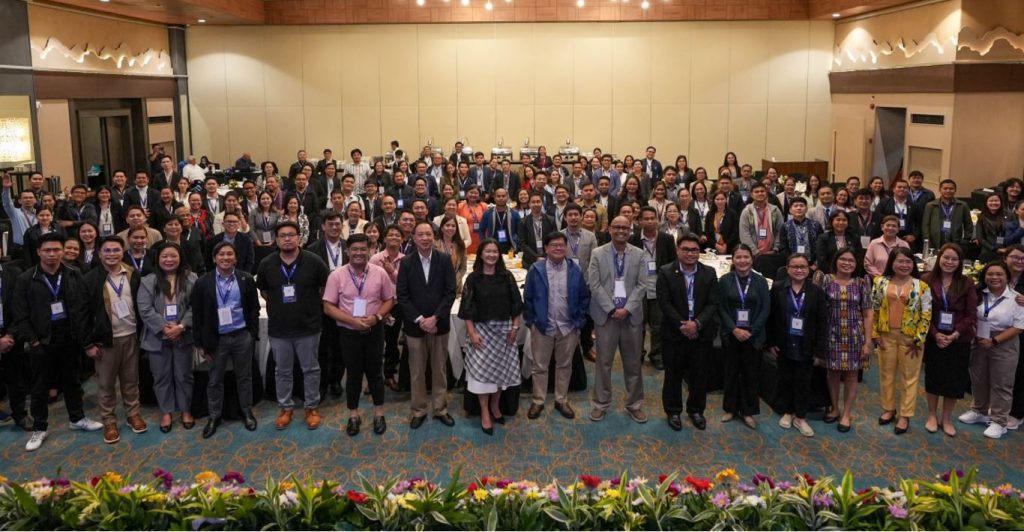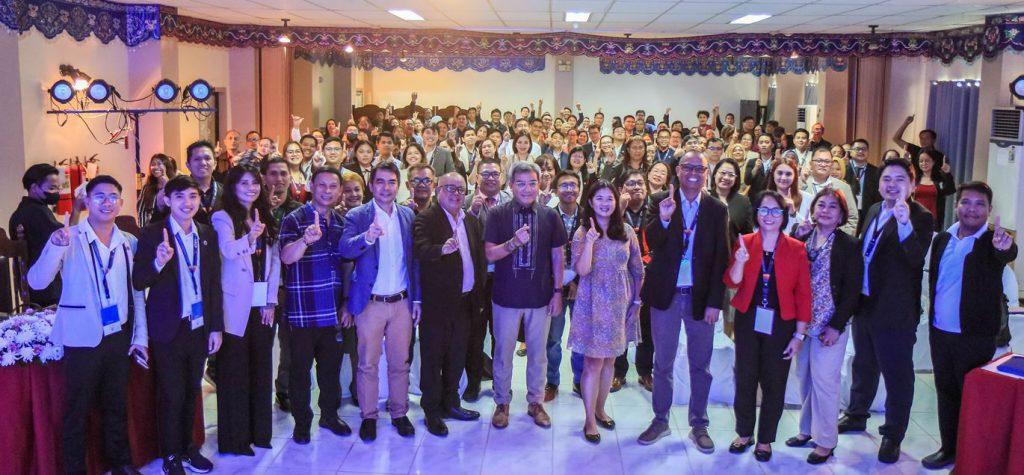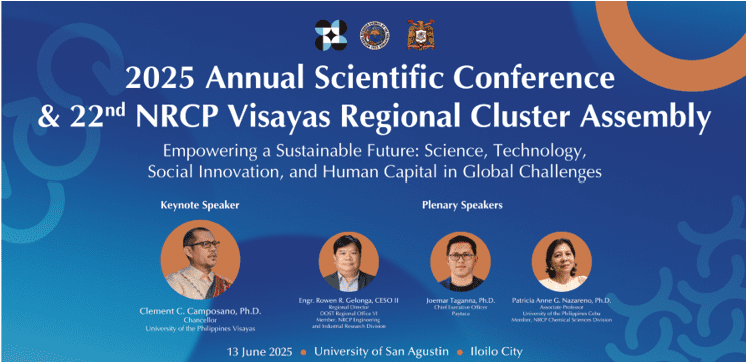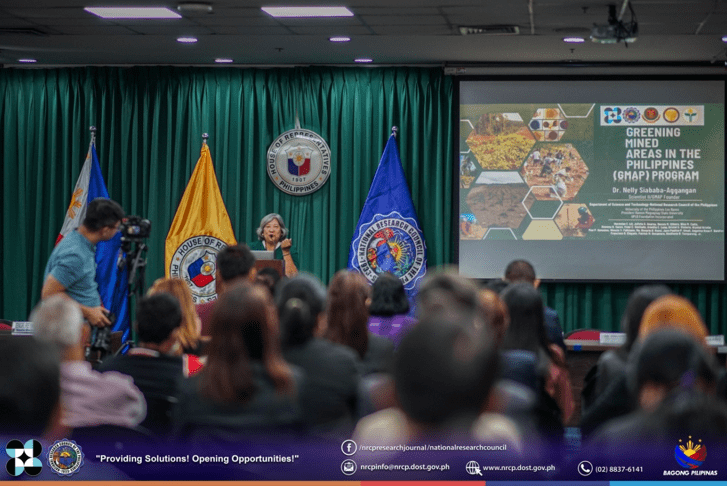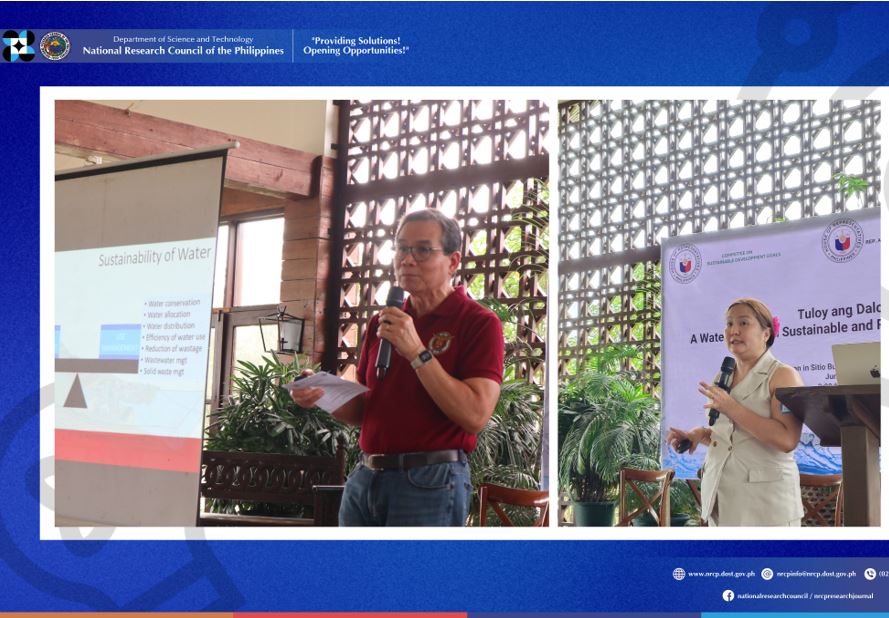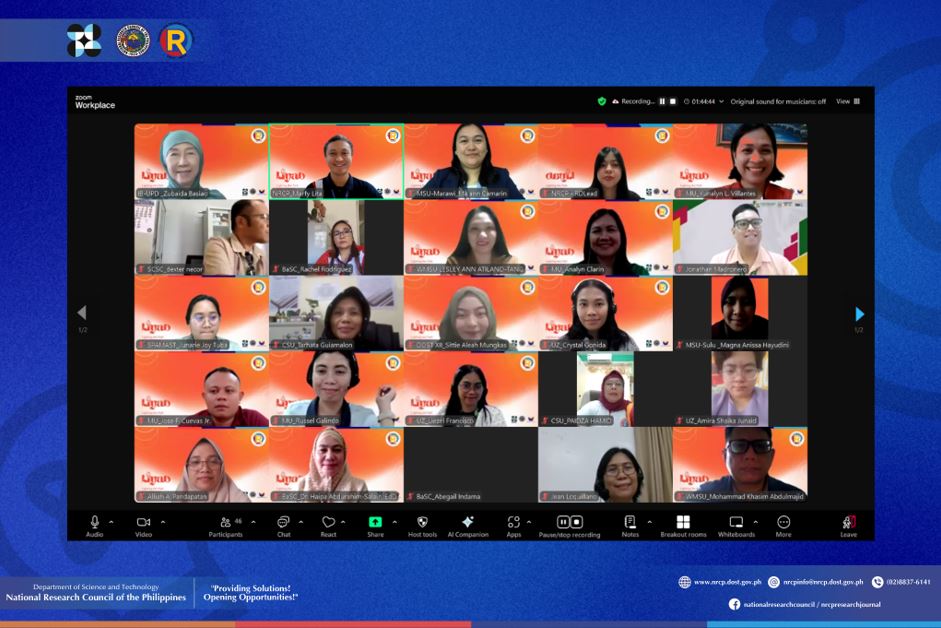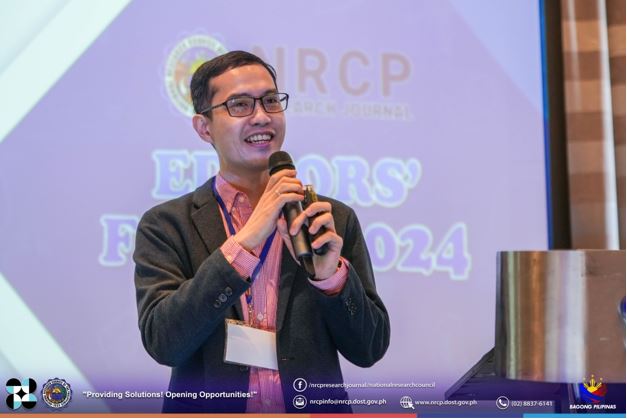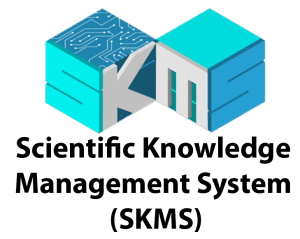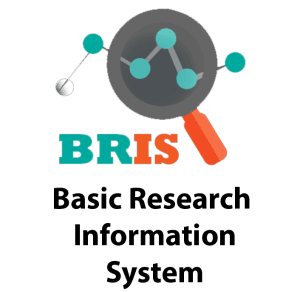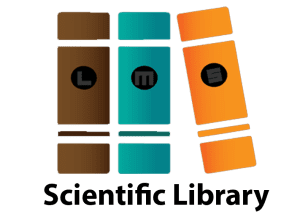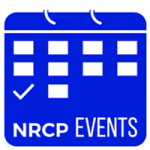DOST-NRCP Highlights AI Application in Transdisciplinary Research during 2024 Annual Scientific Conference, Regional Membership Assemblies
To provide a better understanding of the role of artificial intelligence (AI) in science and evidence-based research and to maximize its benefits in aiding future policies, action plans, and projects, the Department of Science and Technology-National Research Council of the Philippines (DOST-NRCP) explores its application across various research fields during the 2024 Annual Scientific Conference (ASC) and Visayas and Mindanao regional cluster assemblies.
VRC and MRC keynote speakers Dr. Prospero Naval and Dr. Fidel Nemenzo, respectively, discussed the theme, “Artificial Intelligence for Responsive Transdisciplinary Research towards a Sustainable Scientific Future”, while six (6) NRCP member-experts presented the integration and impacts of AI in education, agriculture, and engineering.
Three (3) topics were tackled during VRC’s plenary session in Bacolod, namely, 1) Artificial Intelligence for Precision Agriculture by Maria Gemel Palconit, Associate Member, NRCP Division of Engineering and Industrial Research; 2) Applications of AI in Education by Helen Boholano, Associate Member, NRCP Division of Social Sciences; and 3) Artificial Intelligence in Fisheries and Aquaculture for Enhanced Sustainability and Productivity by Cherry Añasco, Associate Member, NRCP Division of Biological Sciences.
Also, the same number of presentations was presented during MRC conference in General Santos City, namely, 1) The Role of Artificial Intelligence (AI) in Fishery, Aquaculture and Sustainable Development by Dr. Edison Roi Macusi, Regular Member, NRCP Division of Biological Sciences; 2) Impact of AI on Education from the Mindanao Cultural Perspectives by Dr. Cathy Mae Toquero, Regular Member, NRCP Division of Social Sciences; and 3) Integrating AI into Engineering Research: Foundations and Opportunities by Dr. John Anthony Jose, Associate Member, NRCP Division of Engineering and Industrial Research.
The discussion on education focused on the application of AI and its implications for educators in policy development and instructional practices. In the field of agriculture, researchers discussed the application of AI-powered tools to optimize crop yields, improve disease management, and reduce environmental impact. Topics included precision agriculture and assessment of AI-driven policies to support sustainable farming practices. Additionally, the research in engineering sought to address knowledge gaps on the practical application of AI in its various disciplines.
Dr. Aimee Lynn Barrion-Dupo, NRCP President, emphasized that the potentials of AI can leverage research, technology, and innovation.
“Understanding and maximizing AI’s capabilities is a big leap in supporting education, industries, and the economy, thus contributing to a sustainable future for communities,” she stated.
In a separate message, Engr. Sancho A. Mabborang, DOST Undersecretary for Regional Operations, acknowledged the significant changes AI can bring to various fields of research.
“Researchers must be capacitated with skills and abilities in the newest AI tools to cope with the challenges in the changing landscape of research,” he noted.
In addition to the plenary discussions, poster exhibits were conducted showcasing research studies aligned with the theme.
VRC best poster awards were given to the authors of three (3) posters titled Farm to Fashion: Initiating Digital Transformation of the RYPIC-produced Natural Textile Fibers (NTFs) Value Chain Mapping System in the Philippines, Project GeoMap: Geospatial Mapping and Information System for Precise Farming and Smart Agriculture, and AI-Powered Discovery of SARS-Cov-2 3CLPro Inhibitors from Philippine Marine Sediment-Derived Actinomycetes: Integrating In Vitro Screening and In Silico Approach.
Meanwhile, best poster awards were given to the authors of two (2) posters titled Impact Assessment of Phil-LiDAR Program in the Philippines and Genome Analysis of Zampen Native Chicken (Gallus Gallus Linn.) in the Philippines.
Highlights of the assemblies where the general membership business meetings were chairs of VRC and MRC presented their reports, as well as the oath-taking ceremonies for newly approved members.
The 2024 ASC and 21st VRC Assembly happened in Bacolod City on July 23, 2024 was hosted by the Cebu Technological University, Cebu Normal University, and UP Visayas, while the 22nd MRC happened in General Santos City on August 22, 2024 was hosted by the Mindanao State University.
120 member-researchers from Visayas attended the gathering, while 107 from Mindanao.
The ASC and membership cluster assemblies are annual events organized by NRCP which serve as platforms for gathering NRCP members, scholars, policymakers, and academic research institution partners from different regions. The events facilitate scientific discourses, interactions, and collaborations. (Rose D. Dagupen, S&T Media Service)
